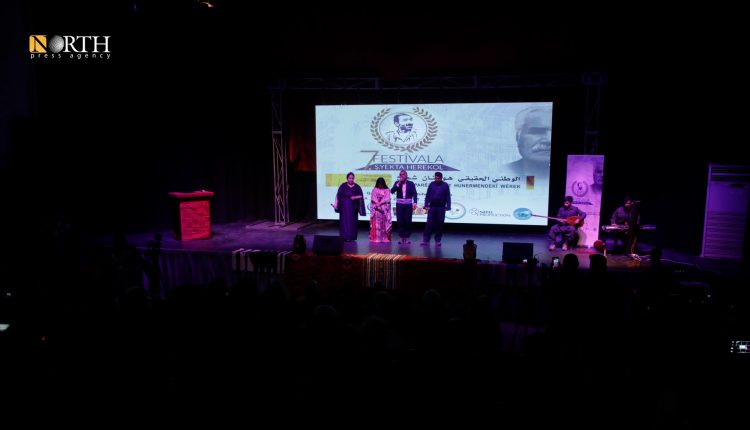Syria’s Qamishli Hosts 7th Kurdish Theater Festival, Celebrating Global Theater Day
By Kardo Roj
QAMISHLI, Syria (North Press) – The seventh edition of the Yekta Herkol Theater Festival kicked off on Thursday in Qamishli, northeast Syria, marking World Theater Day with performances from across Syria and the Kurdistan Region.
The festival, named after the late Kurdish actor and director Yekta Herkol, features 12 theatrical productions, including monodramas and group performances. Participants hail from various regions, including Suwayda, Aleppo, and Iraqi Kurdistan, reflecting the event’s growing regional significance.
Theater as a Cultural Bridge
Speaking to North Press, Kawa Fattah, co-chair of the Theater Commune in Jazira, emphasized the festival’s dual purpose: celebrating global theater and honoring Herkol’s legacy. “March 27 is World Theater Day, and it also marks the anniversary of Yekta Herkol’s martyrdom,” Fattah said.
Originally scheduled to begin earlier, some performances were postponed due to logistical challenges. The festival will now run from April 5 for six consecutive days, culminating in an awards ceremony recognizing outstanding performances and actors.
A Diverse Lineup
The lineup includes a mix of monodramas and ensemble productions, with themes exploring societal struggles, cultural identity, and resilience in the face of conflict. “For the first time, we have groups from Suwayda and Aleppo, alongside performers from southern Kurdistan,” Fattah noted.
The festival provides a rare platform for artists in northeast Syria to showcase their work, despite the broader challenges facing cultural initiatives in the region. “All performances carry meaningful messages that resonate with local communities and support the vision of coexistence in this region,” he added.
The Yekta Herkol Theater Festival is one of the few major cultural events in northeast Syria, a region governed by the Autonomous Administration of North and East Syria (AANES). Despite ongoing regional tensions and economic hardships, the festival underscores the resilience of local artists and their commitment to preserving cultural expression.
Qamishli, a diverse city home to Kurds, Arabs, and Assyrians, has become a cultural hub in the region. The AANES has supported artistic endeavors, seeing them as crucial to social cohesion and identity. In contrast to other parts of Syria where cultural spaces have diminished due to war and political restrictions, theater in AANES-governed areas continues to thrive.
As the festival unfolds, organizers hope it will strengthen cultural ties across the region and encourage greater artistic collaboration. The closing ceremony will feature awards recognizing the best performances and contributions to regional theater.
With each passing year, the Yekta Herkol Theater Festival cements itself as a key cultural event, demonstrating the enduring power of art in times of uncertainty.

